In the ever-evolving landscape of business and technology, staying competitive is a constant challenge. As industries continue to grapple with unprecedented disruptions and rapid digital transformation in 2023, the power of business process automation (BPA) has become more evident than ever.
BPA, driven by advanced technologies like Artificial Intelligence (AI), Robotic Process Automation (RPA), and Machine Learning (ML), is reshaping the way businesses operate, increasing efficiency, reducing costs, and enhancing overall productivity.
Let’s explore the profound impact of BPA in 2023 and how it is revolutionizing the business world.
What is Business Process Automation?

Business process automation (BPA) uses technology to automate business processes. It involves creating digital workflows triggered by certain events or conditions, allowing organizations to complete tasks more quickly and efficiently. BPA helps reduce costs, eliminate manual errors, increase customer satisfaction, and improve overall productivity.
Many businesses have already implemented some form of BPA to streamline their operations and gain a competitive edge over their competitors. Statista said the global BPA market size was $12.7 billion in 2021. KBV Research, an independent market research firm, has forecast the BPA market to reach $19.4 billion by 2026 with a 15.4% CAGR.
The Evolution of Business Process Automation

Business process automation isn't a new concept. It has been around for decades, with businesses automating repetitive tasks and workflows to increase efficiency. However, in 2023, BPA has significantly evolved thanks to advancements in technology. Traditional automation was limited to rule-based tasks, while modern BPA leverages AI, RPA, and ML to handle complex cognitive tasks and adapt to changing circumstances.
AI and ML algorithms can analyze vast datasets, make predictions, and continuously learn from new data, enabling organizations to automate decision-making processes that were previously human-dependent. RPA, on the other hand, excels at mimicking human actions within digital systems, making it indispensable for streamlining workflows across various industries.
Benefits of Business Process Automation
Enhanced Efficiency and Productivity

Every business strives for efficiency and productivity, and BPA plays a critical role in achieving these goals. In 2023, automation has progressed beyond simple task completion to serve as a catalyst for optimizing entire processes. Employees can focus on more strategic and creative endeavors with automation handling repetitive and data-intensive tasks. Employees are liberated from mundane tasks and empowered to contribute meaningfully to the organization's goals, which improves not only productivity but also job satisfaction.
Cost Reduction and Resource Allocation
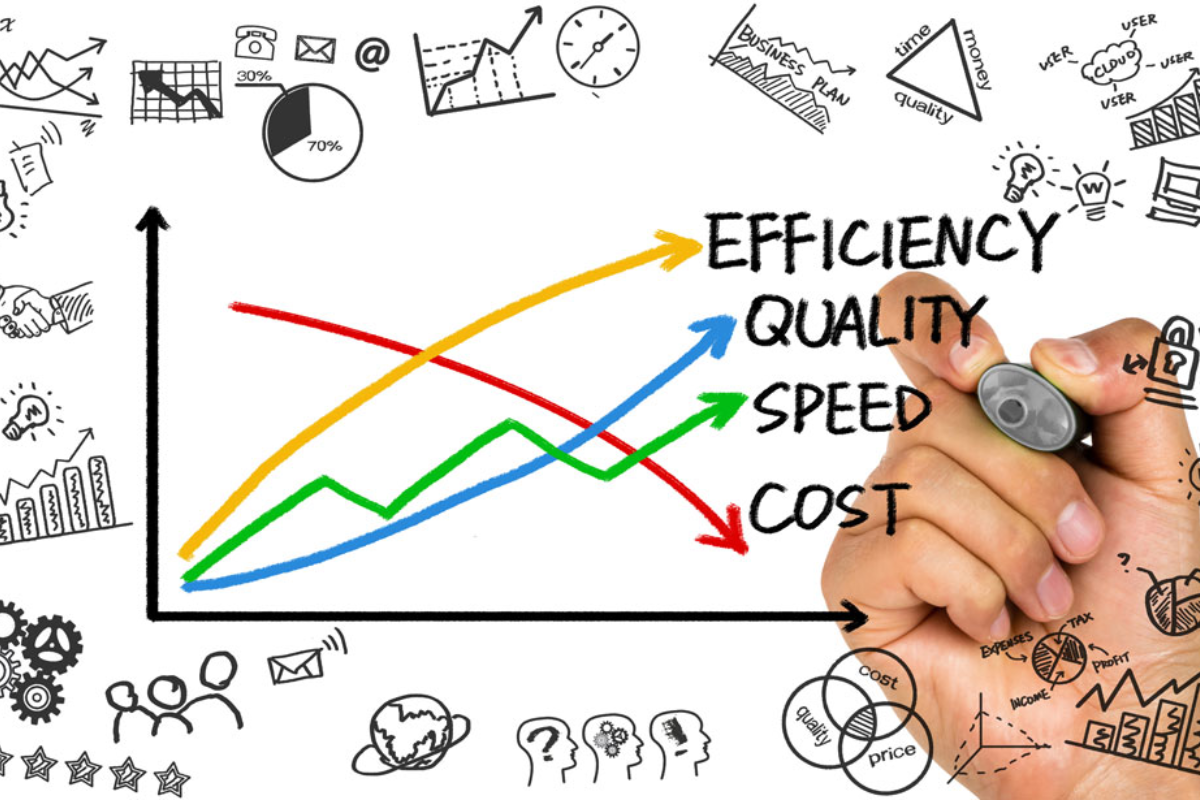
In a competitive market, cost reduction is critical to maintaining profitability. BPA enables businesses to do just that. Businesses can save significant amounts of money previously spent on manual labour and operational overhead by automating processes. For example, in customer service, AI-driven chatbots and virtual assistants can handle routine inquiries 24/7, reducing the need for round-the-clock human support. Moreover, BPA allows for intelligent resource allocation. Organizations can allocate their human resources more strategically, focusing on tasks that require creativity, complex problem-solving, and interpersonal skills while letting automation handle the repetitive and data-driven aspects.
Enhanced Customer Experience

Customer experience is critical in the digital age. Businesses understand that happy customers lead to brand loyalty and advocacy. In 2023, BPA will play a significant role in improving the customer experience. With AI-powered personalization, organizations can analyze customer data to provide tailored recommendations, advertisements, and customer support interactions. This level of personalization improves not only customer satisfaction but also sales and customer retention. Furthermore, BPA can significantly shorten response times. Automation can handle customer inquiries quickly, resulting in faster issue resolution and higher overall satisfaction. Chatbots, for example, can provide instant responses to common customer queries without the need for human intervention.
Agility and Adaptability

The business landscape is constantly changing, and businesses must adapt quickly to new challenges and opportunities. Modern BPA solutions, as opposed to static, rule-based automation, can adapt to changing circumstances and learn from new data. Machine learning algorithms can analyze market trends, customer behaviour, and competitor activities in real time, helping businesses make data-driven decisions quickly. This adaptability is invaluable in industries that require quick decisions, such as finance, e-commerce, and healthcare. Furthermore, BPA enables organizations to easily scale operations. Whether a company is expanding or contracting, automation can be adjusted to meet changing demand without extensive recruitment or layoffs.
Compliance and Risk Mitigation
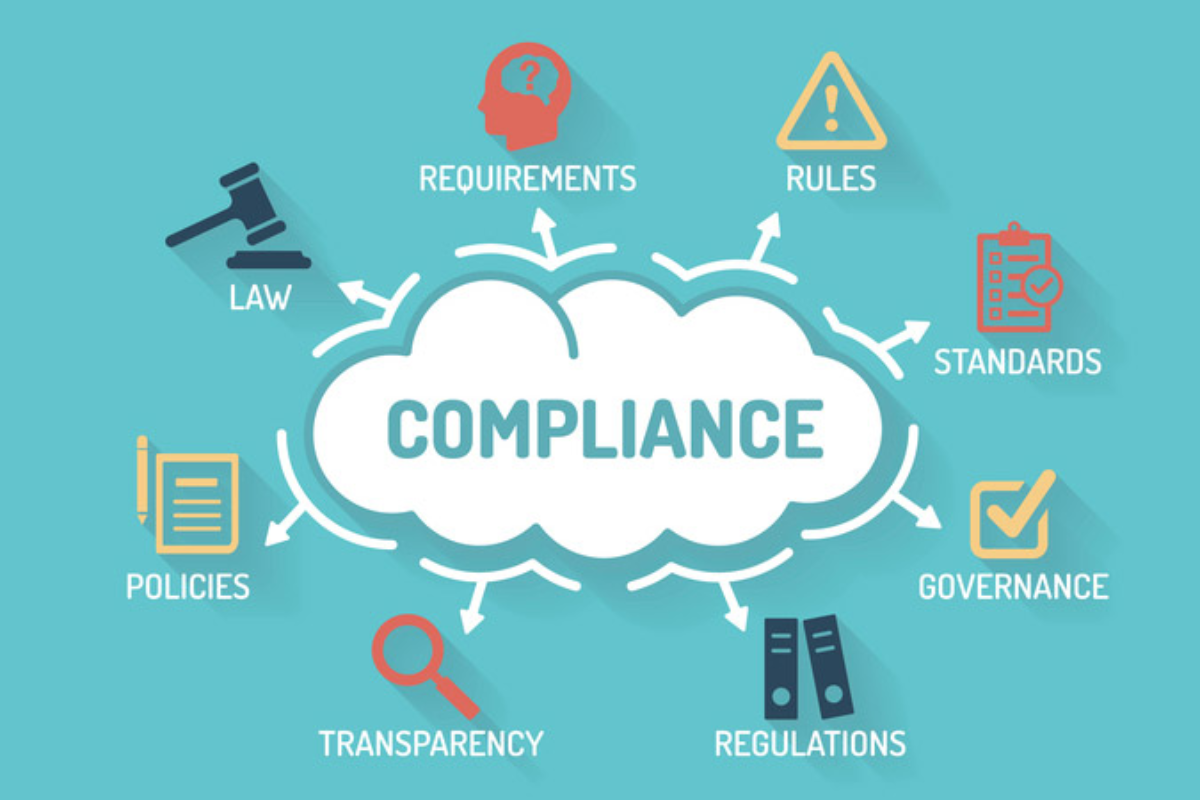
Compliance with regulations and risk management are paramount concerns for businesses in 2023. Failure to adhere to industry-specific regulations can result in hefty fines and damage to a company's reputation. BPA plays a vital role in ensuring compliance and mitigating risks. Automation can enforce compliance by systematically applying regulations to every transaction and flagging any anomalies for review. For instance, in the financial sector, AI-powered software can monitor transactions for suspicious activities and report them in real time, reducing the risk of financial crime.
Data-Driven Decision Making

Data is king in the digital age. The ability to collect, analyze, and derive insights from data is critical for informed decision-making. BPA in 2023 excels in this regard by automating data collection, processing, and analysis. AI and ML algorithms can sift through massive datasets to identify trends, patterns, and anomalies that human analysts may miss. This data-driven approach enables businesses to make decisions based on facts rather than intuition. BPA can also provide real-time analytics, allowing businesses to respond quickly to changing market conditions and customer preferences. In highly competitive industries, decision-making agility can be a game changer.
Competitive Advantage

In a fiercely competitive business environment, gaining a competitive advantage is essential for survival. BPA provides organizations with a unique edge by allowing them to do more with less. Businesses that embrace automation in 2023 can offer faster services, more personalized customer experiences, and lower prices, all while maintaining or even improving profit margins. This competitive advantage not only attracts new customers but also retains existing ones, ultimately leading to sustained growth.
While BPA is changing the way businesses operate, it is critical to remember that it does not replace humans; rather, it augments their capabilities. In 2023, we see the rise of human-machine collaboration, where automation works alongside human employees to achieve optimal results. This collaboration is most evident in industries like healthcare, where AI-assisted diagnosis and robotic surgery are improving patient outcomes. In manufacturing, human workers cooperate with robots to enhance production efficiency and safety. The future of work is about combining the strengths of humans and machines to form a more symbiotic relationship that takes advantage of the best of both worlds.
Processes You Can Automate
BPA can be applied to various processes, from marketing and customer service to finance and IT. Here are just some of the common tasks that you can automate in your business:
Invoice Management
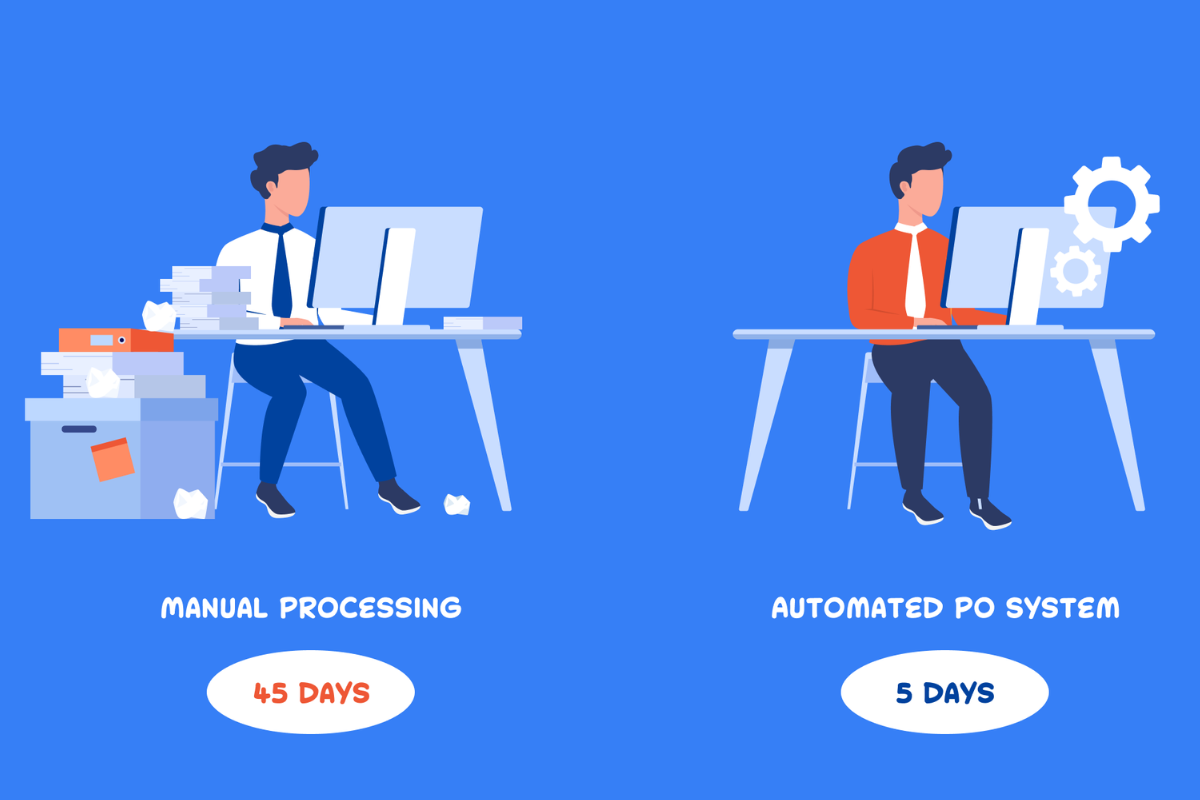
Invoicing is one of the most time-consuming tasks. Automating invoices reduces time-consuming tasks like creating, sending, and tracking them. It also helps streamline your payroll management. Automating your payroll allows you to set up recurring payments, easily manage employee shifts and attendance records, and quickly generate invoices for each pay period. This eliminates errors and allows for efficient and error-free invoice generation.
Hiring and Onboarding

BPA can automate various tasks in the hiring process, including job postings, background checks, offers, and training sessions. You can use automated tools to post job openings on different platforms, quickly screen candidates, and set up onboarding programs for new hires. This streamlines the process, saves time, reduces paperwork, and ensures compliance with legal requirements. It also promotes equal employment opportunities, diversity, and inclusion, attracting potential candidates.
Customer Support
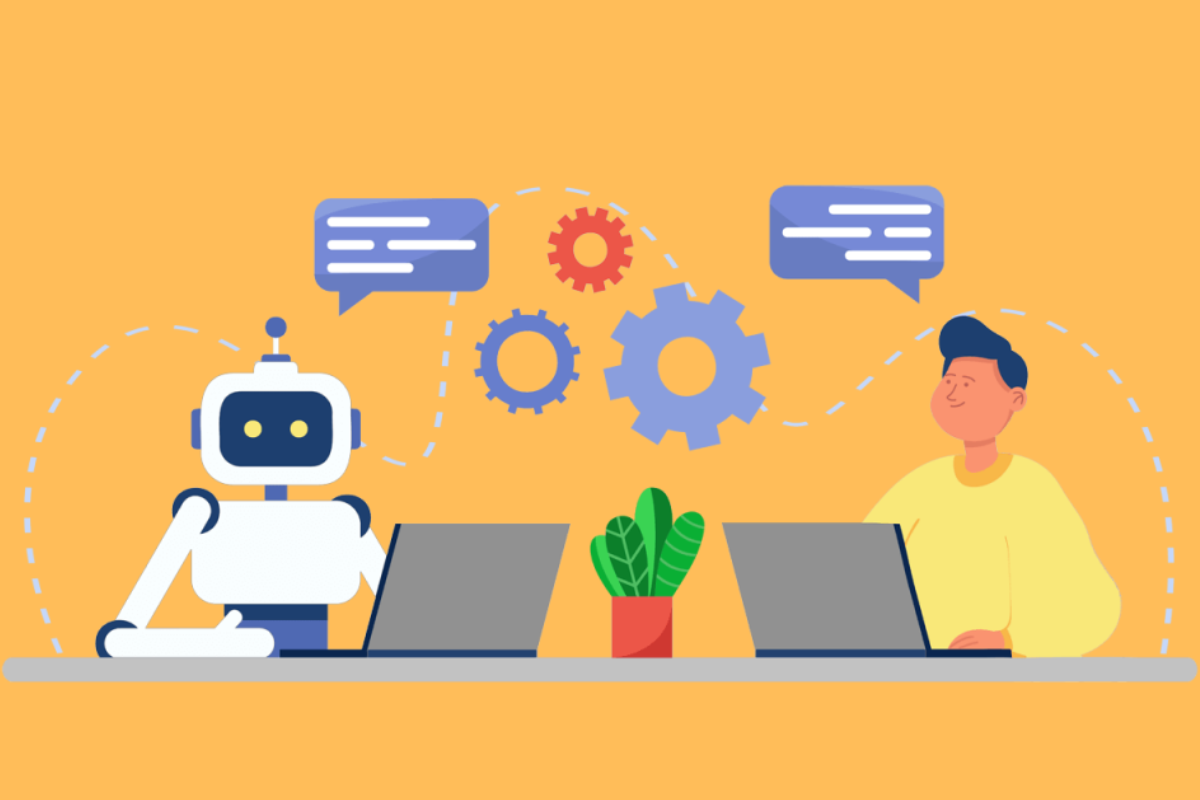
Customer service is the lifeblood of any business. Automating customer support processes can improve efficiency and speed up tasks like answering queries and complaints, providing information, updating records, and managing accounts. You can automate these tasks using a chatbot integrated with your website. Chatbots, AI-based systems, use natural language processing to understand customers' questions and provide accurate answers. With conversational AI platforms like ChatGPT and Google Bard, deploying and managing chatbots is easier. Utilizing customer databases for AI models and automated responses ensures 24/7 customer service without additional staff or expensive software investments.
Sales and CRM
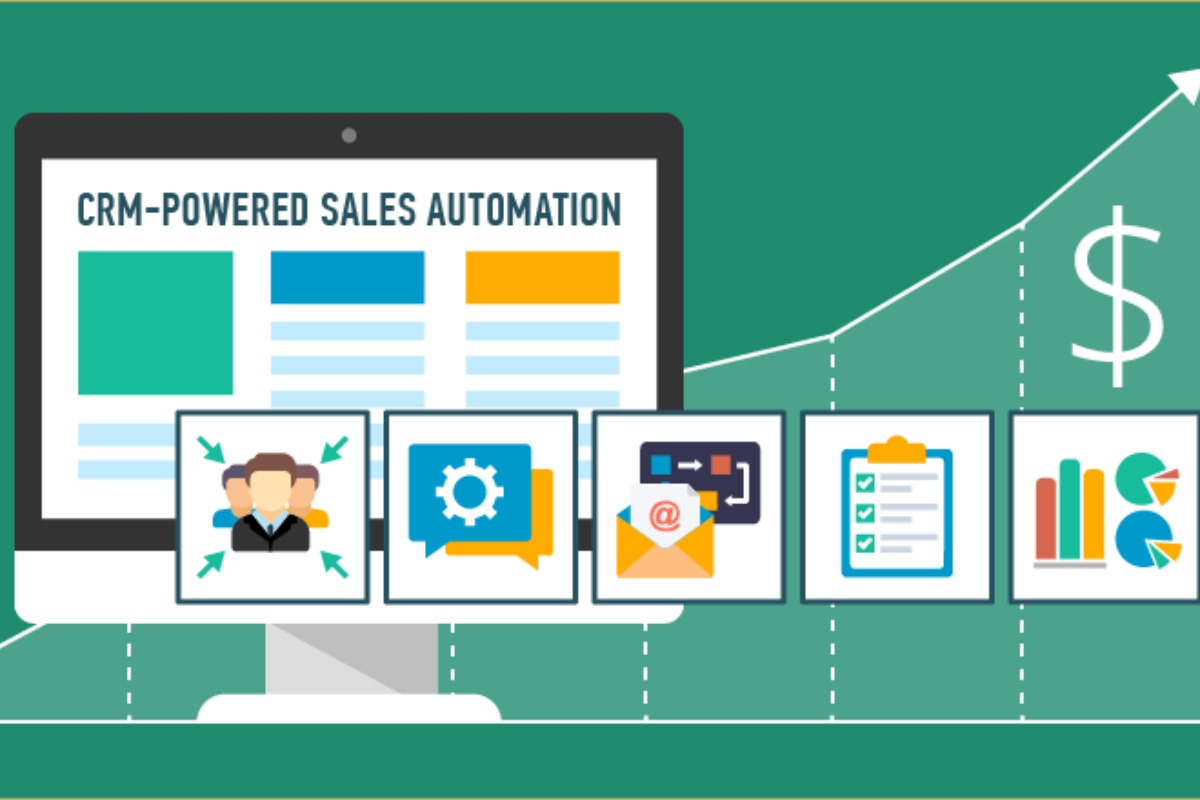
AI can revolutionize sales and customer relationship management (CRM) by automating processes like lead generation, forecasting, customer segmentation, and tracking. AI-enabled predictive analytics can identify new market opportunities and tailor products to meet customer needs. For example, using AI-based natural language processing (NLP), you can analyze customer reviews on your website or third-party websites to gain insights into their preferences. AI tools can automate the lead-scoring process. By tracking customer interactions with the company, one can identify and prioritize leads that are more likely to convert. This helps to focus on high-value customers and save time on manual data entry tasks.
Social Media and Digital Marketing

Social media and digital marketing are two of the most popular processes to automate. Automation can help you create, schedule, and post content to your social media accounts quickly and efficiently. You can also set up automated campaigns on multiple platforms like Facebook, Twitter, Instagram, and LinkedIn. You can also use automation tools to track customer behaviour online and tailor your messages accordingly. This will help you provide a more personalized experience for each customer while increasing engagement with potential leads.
Conclusion

In 2023, the power of business process automation is undeniable. From increased efficiency and cost reduction to enhanced customer experience and data-driven decision-making, BPA is reshaping the way organizations operate. Its agility and adaptability, coupled with the ability to ensure compliance and mitigate risks, make it an indispensable tool in today's competitive business landscape.
As we move forward, it is crucial for businesses to embrace automation, not as a replacement for human workers but as a means to empower them to excel in more strategic and creative endeavors. The future belongs to organizations that harness the full potential of BPA, leveraging it to gain a competitive advantage and drive innovation. In a world where change is constant, business process automation is the key to staying relevant and thriving in 2023 and beyond.
Also Read:















